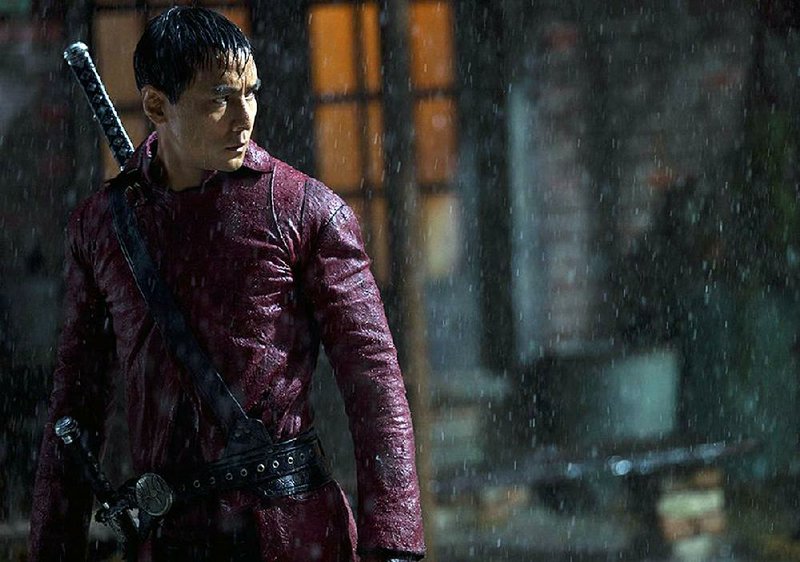LOS ANGELES -- AMC's latest series, Into the Badlands, takes viewers to a futuristic world where a feudal society has risen out of the collapse of civilization. Seven barons rule an area known as the Badlands. The rule of the most lethal baron among the seven is tested by a young boy.
The cast includes Daniel Wu, Marton Csokas, Sarah Bolger, Aramis Knight and Orla Brady. Executive producers Alfred Gough and Miles Millar comment on the new series, which airs at 9 p.m. Sundays on AMC.
Q: Where did the idea for the series originate?
Alfred Gough: It was sort of a very karmic kind of experience. Miles and I had been sort of looking to do a martial arts show as you do when you're television creators who want to find a new series. ... We looked around on television, and there were no martial arts shows on television.
Q: What kind of world have you created?
Miles Millar: In terms of the tech, the idea is that complex technology doesn't exist. There are no circuits or computers, but all technology does exist. Things like cars, pre-1970s would exist, simple machines would exist, electricity would exist in a very simplified form. And then it's about the society of the Badlands is based on, sort of, feudal Japanese societies. So it's the barons, the shoguns, the clippers, we call them, are the soldiers, the warriors, and they're like the shoguns, the samurais.
Q: Why do you have a separate team to film the fight sequences?
Gough: First thing we did when we went to pitch AMC, in the initial pitch, was you want these amazing fights, which we all want. This is sort of how we need to do it, which is, you know, an eight-day fight unit. That's not a second unit. It's literally the size of a main unit running concurrently.
Q: How do you balance the fighting with the story?
Gough: It's interesting, because prior to this, we had all done movies. And even in film, you don't have to think about the length of a fight sequence. Here, you're dealing with a specific length of an episode of television, so it's something that we did talk about. I think we average probably about five minutes of fighting per episode, more or less. Sometimes it's a little longer. It was an interesting sort of math formula to try and figure out, the drama versus the fighting, and sort of what we could achieve.
Q: Is this a world where men and women fight on an equal basis?
Millar: The world is very much about great female fighters and male fighters. It's a very equal, sort of ... skin color doesn't matter in this world. It's about strength and weakness.
Q: How is this series different from other action TV shows?
Millar: The difference is there are shows that have action, but they're not martial arts shows, and that's the difference with this. This at its inception was about trying to achieve ... Chinese style martial arts and American television, and that was the goal of this show. We want characters that would be intriguing, have emotional complexity, and that would engage an audience who wouldn't normally watch a martial arts movie, but embrace an AMC show.
Q: The term martial arts covers a big area. Can you narrow down the style for the series?
Millar: It's definitely a mash-up of [Akira] Kurosawa and Hong Kong movies, even Wong Kar-Wai, in terms of the aesthetic, like the deliberate use of color in the show, to make it saturated, so it's all a giant mash-up. And also, obviously, a spaghetti Western plays a big role as well. So it is a complement of inspirations to make something authentically original.
Style on 11/22/2015
